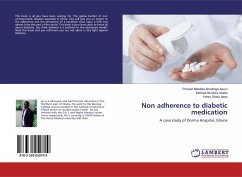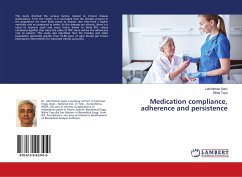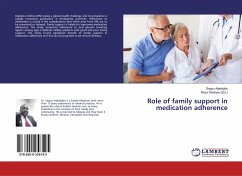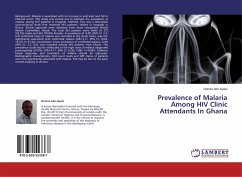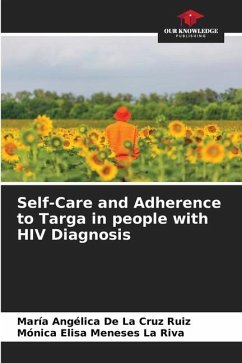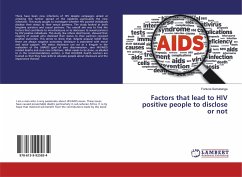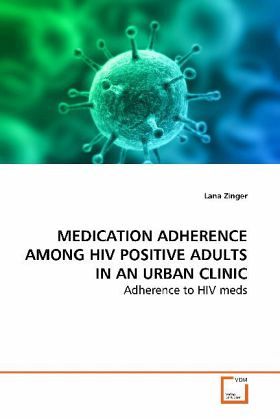
MEDICATION ADHERENCE AMONG HIV POSITIVE ADULTS IN AN URBAN CLINIC
Adherence to HIV meds
Versandkostenfrei!
Versandfertig in 6-10 Tagen
39,99 €
inkl. MwSt.

PAYBACK Punkte
20 °P sammeln!
Combination antiretroviral therapy can stabilize HIV disease progression and extend the lives of people living with HIV, but strict treatment adherence is required to attain maximal therapeutic outcomes. The purpose of this book was to improve understanding about factors that may influence adherence to antiretroviral treatment in HIV-positive, urban adults and to describe some of the barriers they face in adhering to antiretroviral therapies. Understanding these factors can help in planning educational programs that target barriers and improve adherence to antiretroviral medication regimens. ...
Combination antiretroviral therapy can stabilize
HIV disease progression and extend the lives of
people living with HIV, but strict treatment
adherence is required to attain maximal therapeutic
outcomes.
The purpose of this book was to improve
understanding about factors that may influence
adherence to antiretroviral treatment in HIV-
positive, urban adults and to describe some of the
barriers they face in adhering to antiretroviral
therapies. Understanding these factors can help in
planning educational programs that target barriers
and improve adherence to antiretroviral medication
regimens.
Several implications for practice and research
were suggested from the findings. Inner-city clinics
are busy, lack funding, and are overbooked.
Physicians working in inner-city clinics might need
help with supporting patients adherence. This
research supports the need for health educators or
others to work in tandem with physicians to improve
patient-clinician relationships and increase
adherence to medication.
HIV disease progression and extend the lives of
people living with HIV, but strict treatment
adherence is required to attain maximal therapeutic
outcomes.
The purpose of this book was to improve
understanding about factors that may influence
adherence to antiretroviral treatment in HIV-
positive, urban adults and to describe some of the
barriers they face in adhering to antiretroviral
therapies. Understanding these factors can help in
planning educational programs that target barriers
and improve adherence to antiretroviral medication
regimens.
Several implications for practice and research
were suggested from the findings. Inner-city clinics
are busy, lack funding, and are overbooked.
Physicians working in inner-city clinics might need
help with supporting patients adherence. This
research supports the need for health educators or
others to work in tandem with physicians to improve
patient-clinician relationships and increase
adherence to medication.




